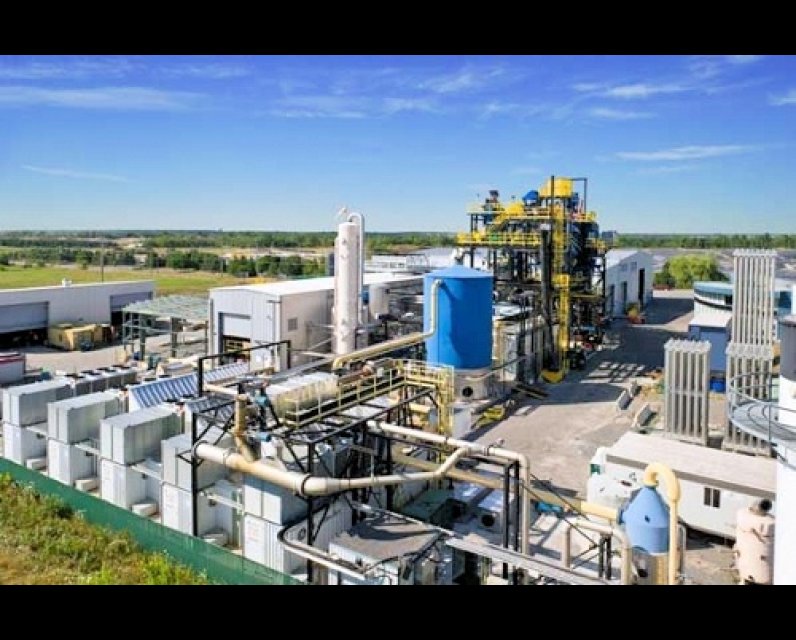Unpublished Opinions
Meg is an overly educated mother with a long-standing interest in natural environments and environmental health. She was a founding member of the Wetlands Preservation Group of West Carleton and of the Coalition for a Healthy Ottawa, and is currently on the Board of Prevent Cancer Now.
Originally trained in chemical engineering and applied chemistry, she is an Ottawa environmental health researcher with experience in epidemiology and scientific evidence. Meg is also an author and editor, and is associated with the CHEO Research Institute.
Plasco fiasco a wake-up call for the City of Ottawa

Plasco is done, all but the clean-up.
Too bad - it would have been a pretty sweet deal, if it worked. Typical waste to energy plants push $200 per tonne all-in costs. For a mere $85 per tonne, the Plasco dream machine would have transformed all the trash off the back of the truck into electricity, inert non-toxic fill, clean water and no pollution whatsoever.
Only catch, this was a dream. A CBC reporter called Plasco’s promises “alchemy.”
According to reports to the Ontario Ministry of Environment, posted online, the plant initially met monthly pollution targets by sitting idle most of the time – it was far from pollution-free.
Almost a year ago the company was contemplating higher energy fuel, clearly abandoning the promised solution for Ottawa's mixed municipal solid waste. It hasn’t run much for years.
Wanting to slow the stream to landfill, the City of Ottawa recently asked for options to manage the residual waste after recycling and composting, including options still under development (sound familiar?). Interested firms, however, met a data roadblock. Five addenda and 40-odd questions later, the City cannot say what will be in that residual waste, or how much to expect.
Time to step back and assess the best options for Ottawa’s residential trash.
The only “easy” solution to trash, if you have a handy hole that doesn’t leak, is to throw it all away. These sites are few and far between, and must be husbanded. Ottawa’s waste strategy indicates that landfill is the last resort; burning, if necessary, is second-last.
Shaking off the allure of alchemy, incinerators are expensive, polluting, cantankerous beasts requiring a constant stream of burnable waste. Sweden imports from the U.K. to feed theirs and Germany is seeking waste to fuel its over-built incinerators.
Truth is, responsible waste management is challenging.
The top priority is reduction. Aim not to make, sell, buy or dispose of materials that are not reusable, recyclable or biodegradable.
Broad consequences ripple back to transportation, manufacturing and resource extraction. Some are unanticipated – for example, Canadian polar bears contain mercury emitted during Asian manufacturing of that tough PVC packaging we struggle with, and then toss because PVC is not easily recycled.
PVC also forms highly toxic dioxins when burned. Recycled Canadian cardboard is looking better by the minute!
Even if the City doesn’t have legal jurisdiction, as the recipient of the trash it has ethical grounds to encourage take-back programs and producer responsibility. Environmentally preferable practices might include recyclable rather than Styrofoam and PVC packaging.
Recycling makes cents. Ottawa’s 2015 garbage fees are not increasing because of revenue from sales of recycled materials.
We could undoubtedly do better. Toronto recently found that 60 per cent of their mixed waste actually could be diverted. Clear plastic bags, and pay-as-you-throw (e.g. purchase of a sticker for more than one or two containers) encourage diligent recycling, and recoup costs of abnormal service requirements.
Composting is also on the agenda, as the City has been under-delivering to Orgaworld, and the City Auditor noted that sending leaf and yard waste is expensive over-kill. Increased kitchen/food waste going to the local facility, including from institutions and commercial establishments, makes sense and was recommended to Ottawa City staff in a 2009 environmental report by consulting firm Kelleher Environmental.
Allowing plastic bags and diapers in compost could increase diversion, but must be restricted to 100 per cent biodegradable options - “compostable” products just break down into small pieces. These plastic fragments can persist in the environment and hyper-accumulate toxic chemicals. Small organisms eat them, and the toxic load kick-starts toxicant bioaccumulation up the food chain.
Microbeads and fragments affect creatures in oceans and lakes, and even earthworms in soil. This does not auger well for our farmland, where the compost is spread.
The Environment Committee will cut its teeth on what to do with Ottawa’s trash, starting at its Feb. 17 meeting. Ottawa needs some serious, alchemy-free trash-talk – optimization of a broad range of low-tech alternatives, and a comprehensive waste audit and management plan – before venturing into expensive, high-tech options.
Plasco fantasies and Orgaworld arbitration stalled development of a waste management master plan for almost a decade. Without a renewed and vigorous commitment to minimizing residual garbage in the first place, the only thing that stands to be effectively disposed of is Ottawa taxpayers’ money.
Comprehensive, consultative planning takes time, so let’s get going. Ottawa, it is time to wake up and smell the compost … uh, coffee!
Meg Sears PhD
Co-chair, Prevent Cancer Now
Ottawa



Comments
Be the first to comment